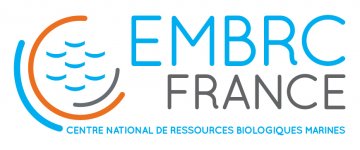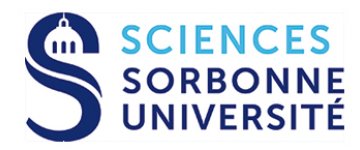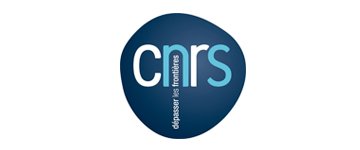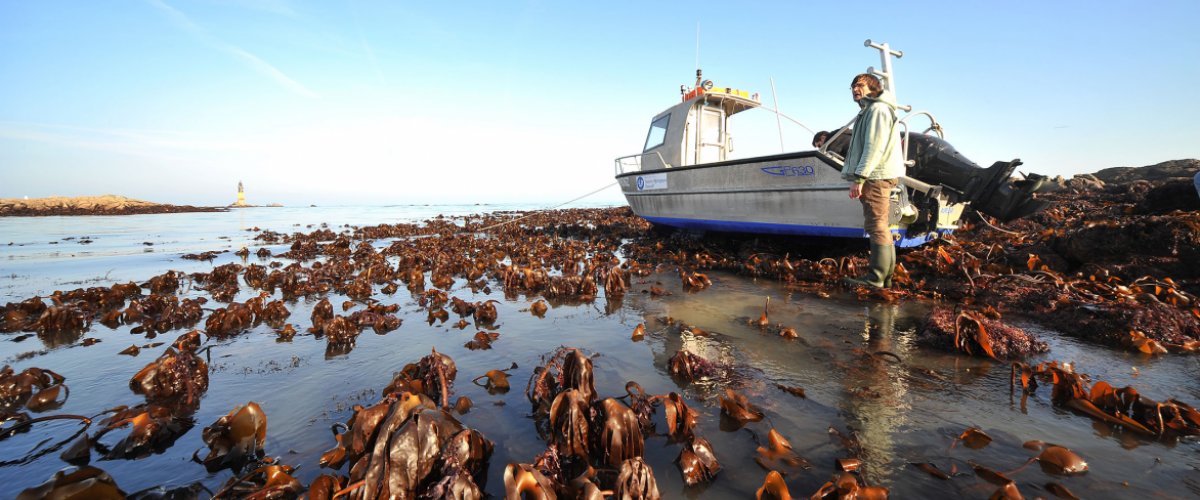IDEALG : development of the french seaweed sector
Federating 18 partners from the public and private sectors, Idealg explores the genetic, metabolic and chemical diversity of seaweed, as well as their associated microorganisms, for the molecules they harbour that may prove useful for materials, cosmetics, agriculture or nutrition and health.
The Idealg project seeks to promote technologies for growing and producing seaweed to avoid exacerbating harvesting pressure on natural populations. Ensuring the sustainable development of a blossoming seaweed industry requires an in-depth study phase to investigate the consequences of cultivation for the environment, societal impacts and the economic returns.
Genetics. The IDEALG project will raise interests on genomic and post-genomic studies of seaweed to develop new tools and methods which will help to select and identify local populations with interesting industrial applications. The goal will be to use these tools to improve domestication processes and contribute to the biotechnological expansion in the field of seaweed exploitation. Micro-organisms which are found associated to seaweed will also be studied in order to better understand metabolic interactions between bacteria and algae. The overall knowledge will benefit the seaweed sector which focuses on transformation processes, such as degradation or bioconversion of the biomass as well as extraction of molecules involved in natural defence mechanisms.
Blue chemistry. Seaweed is well known for its high content in hydrocolloids (alginate, carrageenan, and agar), which present specific chemical and physical properties and are already commercialized. However, other components produced in the algae biomass are defined as higher value molecules and will receive great attention during the IDEALG project. Indeed, IDEALG will focus on new molecules and active substances in order to respond to the growing market of natural products. The study and optimization of new and environmental friendly transformation and synthesis procedures of these bio-molecules will also be attended to, in order to insure a sustainable development.
Biomass. In France, most of the seaweed biomass is harvested from natural populations. With the aim in developing and diversifying the use of seaweed, these populations and associated ecosystems are liable to be pressurized. Therefore, a consistent action in IDEALG will focus on improving production technologies (algoculture). IDEALG will reinforce knowledge of seaweed reproduction and domestication as well as the use of biotechnological tools and processes for optimizing the production of this biomass.
Environment and society. The fundamental roadmap of IDEALG consists in assuring the production of indigenous, non-genetically modified and non-invasive species. The project will bring great attention on impacts liable to affect the environment but also other coastal activities sharing the same economical space. Social and economic issues will be considered in order to integrate a growing seaweed industry in a sustainable society, economy and environment.
This 10-year, €10 m project, earmarked in the “Biotechnologies and Biological Resources” programme of the Investing for the Future scheme federates :
- The European University of Brittany (UEB)
- The Roscoff Biological Station (CNRS-UPMC)
- IFREMER
- Universities of Western Brittany , Southern Brittany , Rennes I and Nantes
- The Ecole nationale supérieure de chimie de Rennes
- Agrocampus Ouest
- The French National Institute for Agricultural Research
- A technical centre (Centre de valorisation des algues in Pleubian)
Five businesses based on seaweed technology and cultivation: C-Weed aquaculture in Saint-Malo, Aléor in Lézardrieux , France Haliotis in Plouguerneau, Bezhin Rosko in Roscoff , Dupont-Danisco in Landerneau and Copenhagen.
The partnerships in Idealg encompass the regional, national and international levels and cut across the public and private sectors.








